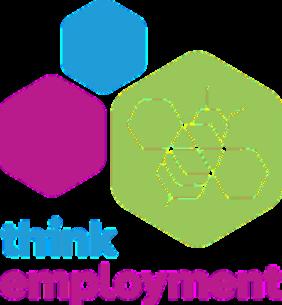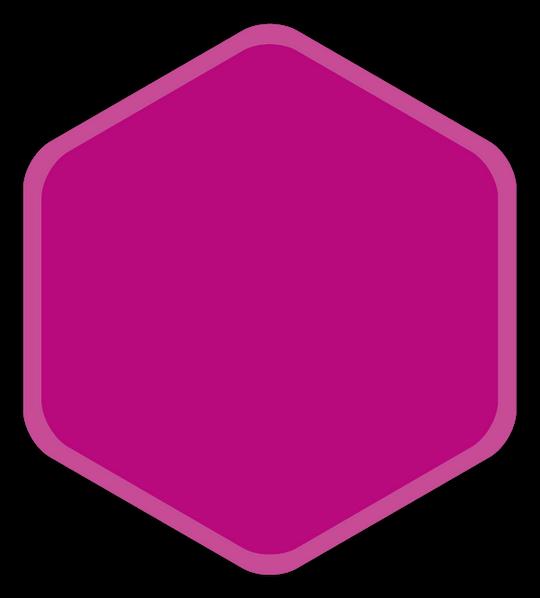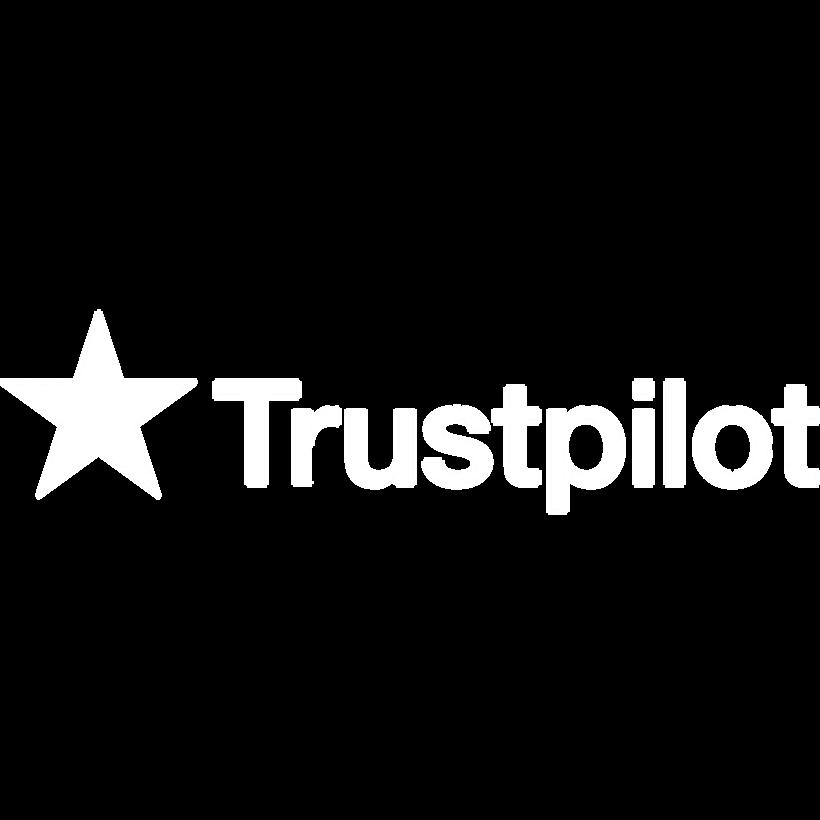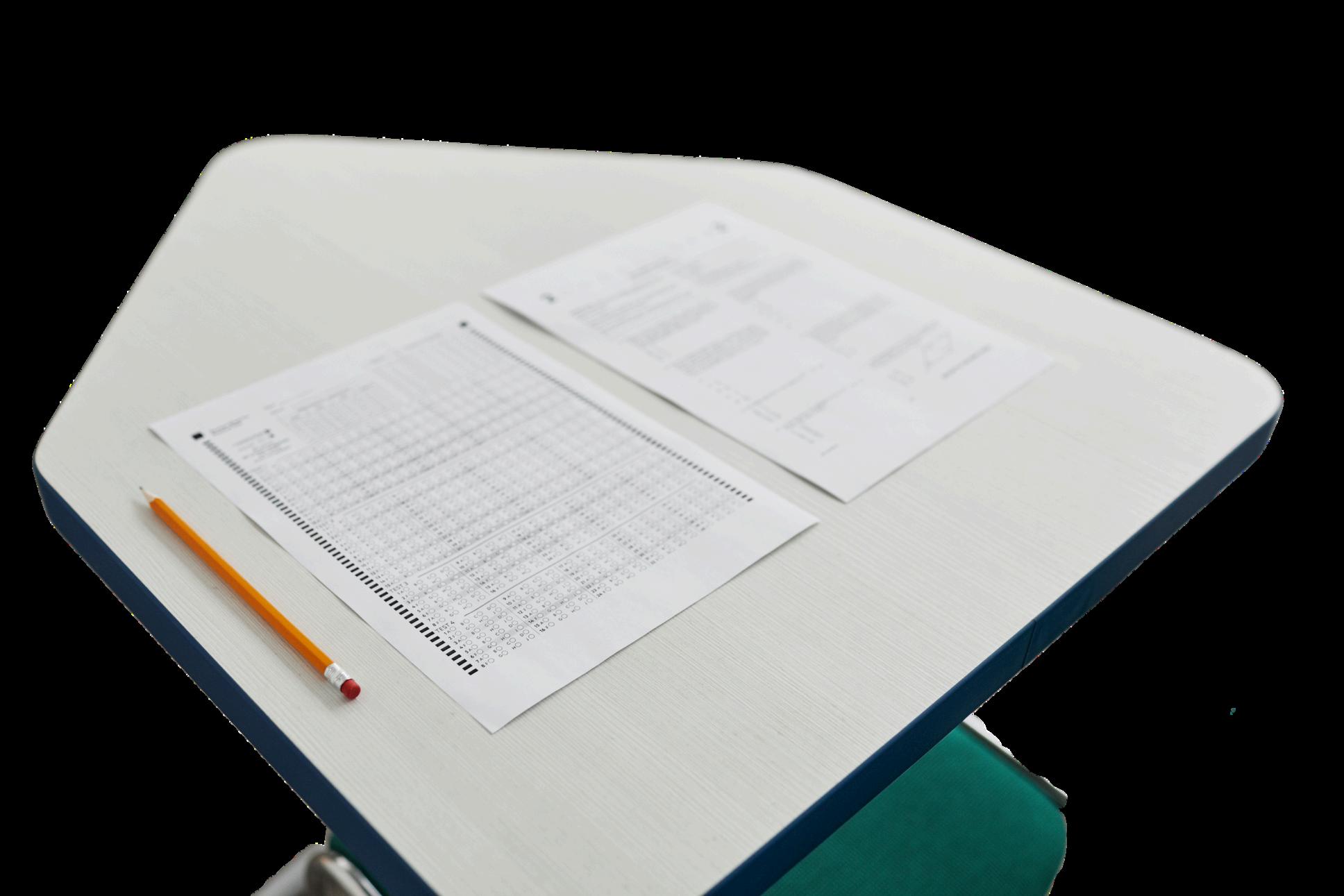










The marking guide outlines each question in every unit and is divided into three sections. The first, highlighted in black, checks that the learner has responded in the correct format based on the command verb; if not, grading does not proceed further. The second section sets out the grading levels—green for ‘Pass’, blue for ‘Good’, and pink for ‘Exemplary’—with example answers for each level listed underneath. The learners answers do not always need to be exact to the examples given, these are just for your reference to indicate the types of answer you should expect at each grade. Feedback can then be given according to the level achieved, with guidance on how to progress to the next level where appropriate.
1
Check the learner has answered the question in the format required by the command verb given
2

3
Check the learners answer meets the criteria for a ‘pass’, ‘good’ or ‘exemplary’ to be awarded Give appropriate feedback to reach the next level where appropriate
This simple structure below can be used to give feedback at each level, showing learners how to improve their answers and progress further. It doesn’t need to be followed exactly but serves as a guide for identifying the points they may have missed, drawing from the ‘good’ or ‘exemplary’ sections where appropriate.
Has a basic level of understanding
You have shown a basic level of understanding on [insert topics]. You can [insert command verb] these topics effectively. To strengthen your answer, you could include [insert answers from the good criteria].

Has a good level of understanding
Well done! You have shown a clear understanding of [insert topics]. You can [insert command verb] these topics in detail and provide relevant examples. To improve further, you could expand your answer by including [insert answers from the exemplary criteria].

Has an exemplary level of understanding


You have demonstrated an outstanding level of understanding on [insert topics]. Fantastic work!

Describe the expected pattern of children and young people's development from birth to 19 years, to include:
a) physical development
b) speech, language and communication development
c) cognitive development
d) personal, social and emotional development
The answer will only meet the criteria if:
Note: This is an example. Ensure that ALL types of development are covered for each age range - learners tend to miss speech, language and communication development. We don't impose the age range: it could be 0-3, 3-7, 7-12, 12-16, 16-19 OR 0-5, 5-11, 11-16, 16-19 or any other relevant age ranges.
The learner has described the answer, e.g. used paragraphs to describe each stage and area.
To meet the criteria the learner must include answers such as: 0-3 | Physical
At birth children have approximately 25cm of vision and is about a quarter of the size they will be when fully grown
0-3 | Cognitive
To begin with they learn about objects largely by putting things in their mouth. Bright colours lights and bold patterns are things they respond to.
0-3 | Personal, Social and Emotional
All emotions are heightened and they cannot yet regulate them. Children at this stage of development do not yet have empathy for others. They have strong attachments to parents and may feel sad when they are separated from parents, tantrums start due to frustrations
To exceed the criteria the learner must fully meet the ‘pass’ criteria and further include answers such as:
0-3 | Physical
As they progress through this phase of childhood they will roll over, learn to crawl and start grasping things first with a pa mer hold progressing to a pincer hold. Learning to climb walk and use the potty/toilet.
0-3 | Cognitive
From 8 months onward they learn to respond to routine and will notice/look for a missing object. Progressing to learn colours and body parts as well as animals.
0-3 | Personal, Social and Emotional
They start to learn what they do and don’t ike and enjoy expressing this Wanting to do the things they enjoy and starting to develop an amount of in dependence (me do). They are egocentric, enjoys imitating adults, want to please adults, parallel play alongside others.
0-3 | Speech, Language and Communication
Starting to mimic sounds they hear single syllables will be mixed in which then turns to words and by the end of this phase they know and use approximate y 200 words and will be making short sentences consisting of 3-4 words

For an exemplary answer the learner must exceed the ‘good’ answer criteria and further include answers such as:
No examples available for this question
Describe the expected pattern of children and young people's development from birth to 19 years, to include:
a) physical development
b) speech, language and communication development
c) cognitive development
d) personal, social and emotional development
To meet the criteria the learner must include answers such as:
0-3 At birth children have approximately 25cm of vision and is about a quarter of the size they will be when fully grown
3-7 At this stage of development children will have their fastest growth spurt. They will become more coordinated improving on their fine motor skills so will learn to manage small objects such as buttons and zips.
7-12 Losing their baby teeth is a big milestone in the stage of development. Become able to properly use tools such as musical instruments or bats.
12-16 They have improved fine motor skills, such as more proficient with writing holding a pen. Boys start puberty, have their second growth spurt and by the end of this phase they will likely be taller and stronger than girls.
16-19 At this stage of development they still have fragile growth plates and a wider variety of strength will be apparent.
0-3 To begin with they learn about objects largely by putting things in their mouth Bright colours, lights and bold patterns are things they respond to
0-3 All emotions are heightened and they cannot yet regulate them. Children at this stage of development do not yet have empathy for others. They have strong attachments to parents and may feel sad when they are separated from parents tantrums start due to frustrations.
3-7 They become more curious about the world around them wanting to investigate new things. They will be able to recall the order of events when something happens. 3-7 At this stage of development children become compassionate noticing other people's emotions. They begin to share, enjoy structure, routine and boundaries.
7-12 Children become aware of right and wrong. They can follow the rules during games.
12-16 Understanding strategy games such as chess as well as playing computer games may become an interest to them They will be unsure of subjects they dislike and lack in self-esteem.
16-19 They will develop an understanding of peoples point of view and be able to see the merit in it. Still needing advice at times due to a lack of life experience.
7-12 Becoming aware of other cultures and countries helps with being empathetic. Their friendships become more secure and are able to manage friend groups
12-16 They will be opinionated but also aware of politics ethics and religions. They become self aware and aware of consequences at this stage
16-19 They will be egocentric thinking their point of view is more important than others therefore lack empathy. Being overly dramatic is to be expected.
0-3 The first form of communication is crying, they respond to familiar voices and other sounds Cooing and babbling then slowly progresses to speech
3-7 Having developed up to a 4000 word vocabulary before the end of this phase, at this point they never stop talking They enjoy asking questions often referred to as the why phase.
7-12 They will learn to anticipate future events and be able to explain why. Also learning to describe and explain their emotions and the choices they make
12-16 Children will learn sarcasm and different language styles, using their now 20,000 word vocabulary
16-19 Learn to use persuasion to get the result they want in various situations. They will also learn to infer the meaning behind what people say to them (read between the lines)
Describe the expected pattern of children and young people's development from birth to 19 years, to include:
a) physical development
b) speech, language and communication development
c) cognitive development
d) personal, social and emotional development
To exceed the criteria the learner must fully meet the criteria for a ‘pass’ and further include answers such as:
0-3 As they progress through this phase of childhood they will roll over, learn to crawl and start grasping things first with a palmer hold progressing to a pincer hold. Learning to climb walk and use the potty/toilet.
3-7 They will also be able to start using a tripod grasp. Balance will be improving so things like running, jumping and riding a bike/scooter are some of the physical activities they will learn.
7-12 Relying mainly on aerobic energy system they get most of their energy from oxygen (not their parents’ souls). For girls’ puberty usually begins during this stage of development as well as the second growth spurt usually finishing by age 14.
12-16 Reactions times will improve. Increasing their range of abilities Some may start a hobby based on fine motor skills.
16-19 Boys will continue to grow till they are in their midtwenties their voices will continue to change and facial hair and facial definition will also change. Girls will most likely have stopped growing by this point. Sexual development is well on the way for girls whereas boys will still be adjusting to this aspect of life.
0-3 From 8 months onward they learn to respond to routine and will notice/look for a missing object. Progressing to learn colours and body parts as well as animals
3-7 Children will learn to follow instructions with 3 or more steps Imagination begins to take shape with logical thinking and writing is learned.
7-12 Start discussing abstract thoughts and will be able to apply this to other aspects of life and learning.
12-16 They will want to feel accepted and have a sense of belonging. The idea of abstract thought becomes more clear They start using logic and applying to different aspects of life
16-19 Memory improves, which helps with higher education and future planning. They will have motivation with their own choices and be keen to progress in their chosen professional and personal lives.
0-3 They start to learn what they do and don’t like and enjoy expressing this. Wanting to do the things they enjoy and starting to develop an amount of in dependence (me do). They are egocentric enjoys imitating adults, want to please adults, parallel play alongside others
3-7 Becoming argumentative at this stage and yet quick to forgive They will become aware and therefore upset by mistakes and failures. Upset can be frequent due to wanting more independence and craving approval. Due to development in other areas they are able to express there concerns using imagination.
7-12 They start to become competitive during this stage and can be quite possessive
12-16 Hormones are playing a part in their development as well. There is a lack of self esteem caused by the massive changes of puberty. Children will start to look for peer approval
16-19 First experiences with love are also likely to happen during this stage of development. The making of long term plans and experience with committed relationships will help increase and strengthen their sense of community.
0-3 Starting to mimic sounds they hear single syllables will be mixed in which then turns to words and by the end of this phase they know and use approximately 200 words and will be making short sentences consisting of 3-4 words
3-7 They will learn to use/understand past tense Children will enjoy recalling a story and passing on messages Reading and writing will start to develop
7-12 Develop an understanding of punctuation and spelling along with learning joined up handwriting with their growing vocabulary of up to 10 000 words. Making jokes will also be something they learn.
12-16 They will develop an understanding of poetry and fiction. Adult conflict will start due to the shift of seeking peer approval more than that of adults. Justifications for their actions and opinions will be apparent and often articulate.
16-19 They will have periods of quietness be comfortable with not filling the in the lull in conversation. They will be keen to choose discussion themes with their peer groups having developed a deeper understanding of the world and forming their own views
Describe the expected pattern of children and young people's development from birth to 19 years, to include:
a) physical development
b) speech, language and communication development
c) cognitive development
d) personal, social and emotional development
For an exemplary answer the learner must exceed the ‘good’ answer criteria and further include answers such as:
The above are example answers, the learners answer does not need to be exact to those given above but these should be used as an indication for the type of answer you should expect to award a ‘exemplary’ grade, along with those given to meet the ‘pass’ and ‘good’ criteria.